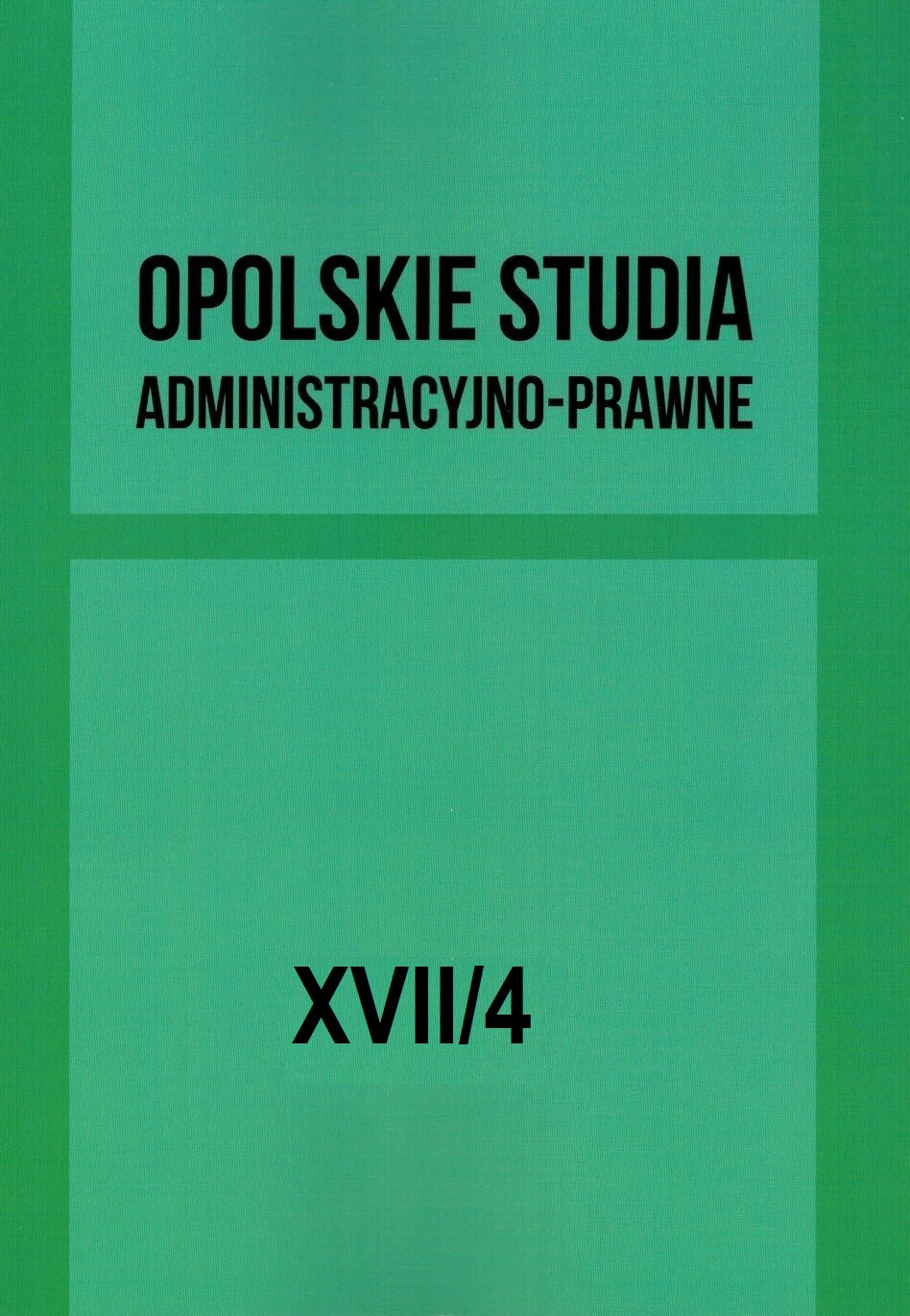A gloss to the Supreme Court Judgment of 5 March 2019, IV KK 484/17
Glosa do wyroku Sądu Najwyższego z dnia 5 marca 2019 r., IV KK 484/17
Author(s): Marta KubicaSubject(s): Law, Constitution, Jurisprudence
Published by: Uniwersytet Opolski
Keywords: the prosecutor’s supervision of preparatory proceedings; carried out by financial authorities of preparatory proceedings; formal defects of an indictment; absence of complaint by an authorized prosecu
Summary/Abstract: This gloss discusses the issue of the prosecutor’s supervision over preparatory proceedings carried out by a financial authority of preparatory proceedings and the procedural consequences of the prosecutor undertaking supervision of such proceedings. The author is of the opinion that a procedural act performed by the prosecutor consisting in extending the period of enquiry carried out by the financial authority of preparatory proceedings for more than 6 months, does not constitute a decision which is accidental in nature and may not be deemed to be a technical act. Such an act is supervisory in nature. Consequently, if it is assumed that the prosecutor’s decision on the extension under Article 153 § 1 sentence 3 of the Penal and Fiscal Code for the period of more than 6 months of the enquiry concerning a fiscal offence, conducted by a financial authority of preparatory proceedings, means that the said prosecutor undertakes supervision over the said enquiry, then Article 155 § 1 and 2 of the Penal and Fiscal Code must be applied for the purpose of preparing and filing an indictment with the court. In accordance with the law applicable as of 1 July 2015, the financial authority of preparatory proceedings which conducted the investigation as well as the enquiry under the prosecutor’s supervision must prepare an indictment taking into consideration its formal requirements as set out in Article 119 of the Code of Criminal Procedure, Article 332 of the Code of Criminal Procedure, Article 333 of the Code of Criminal Procedure in connection with Article 113 § 1 of the Penal and Fiscal Code, and it must subsequently transfer it to the prosecutor, who approves it and files it with the court. The act of filing an indictment with the court by the Customs Office, where the enquiry was under the prosecutor’s supervision, and where such indictment was filed without the prosecutor’s approval, must be deemed to have been undertaken by an unauthorized body, which constitutes a negative procedural premise which is the absence of indictment by an authorised prosecuting organ (Article 17 § 1 point 9 of the Code of Criminal Procedure). Streszczenie: W glosie przedstawiono problematykę nadzoru prokuratora nad postępowaniem przygotowawczym, prowadzonym przez finansowy organ postępowania przygotowawczego, a także omówiono skutki procesowe objęcia przez prokuratora nadzoru nad takim postępowaniem. Autor wyraża zapatrywanie, iż czynność procesowa prokuratora, wyrażająca się w dalszym przedłużeniu dochodzenia, prowadzonego przez finansowy organ postępowania przygotowawczego, na okres ponad 6 miesięcy, nie jest decyzją o charakterze wpadkowym i nie można jej uznać za czynność techniczną. Czynność ta ma charakter czynności nadzorczej. Konsekwencją przyjęcia, że przedłużenie przez prokuratora, na podstawie art. 153 § 1 zd. 3 k.k.s., na okres ponad 6 miesięcy, dochodzenia w sprawie o przestępstwo skarbowe, prowadzonego przez finansowy organ postępowania przygotowawczego, oznacza objęcie przez prokuratora nadzorem tego dochodzenia, jest zastosowanie przepisu art. 155 § 1 i 2 k.k.s. dla sporządzenia i wniesienia aktu oskarżenia do sądu. W stanie prawnym, obowiązującym od dnia 1 lipca 2015 r., finansowy organ postępowania przygotowawczego, który prowadził śledztwo, a także dochodzenie objęte nadzorem prokuratora sporządza akt oskarżenia, z uwzględnieniem przy tym jego warunków formalnych, określonych w treści art. 119 k.p.k., art. 332 k.p.k., art. 333 k.p.k. w zw. z art. 113 § 1 k.k.s., a następnie przekazuje prokuratorowi, który zatwierdza akt oskarżenia i wnosi go do sądu. Wniesienie aktu oskarżenia do sądu przez Urząd Celny, w sytuacji gdy dochodzenie było objęte nadzorem prokuratorskim, bez jego zatwierdzenia przez prokuratora, należy uznać za dokonaną przez organ nieuprawniony, co stanowi negatywną przesłankę procesową w postaci braku skargi uprawnionego oskarżyciela (art. 17 § 1 pkt 9 k.p.k.).
Journal: Opolskie Studia Administracyjno-Prawne
- Issue Year: XVII/2019
- Issue No: 4
- Page Range: 129-140
- Page Count: 12
- Language: English

